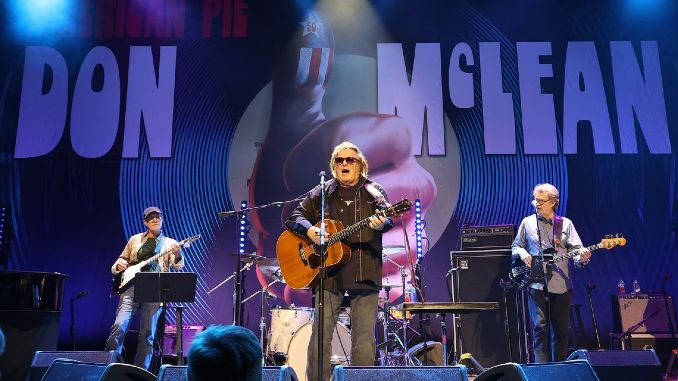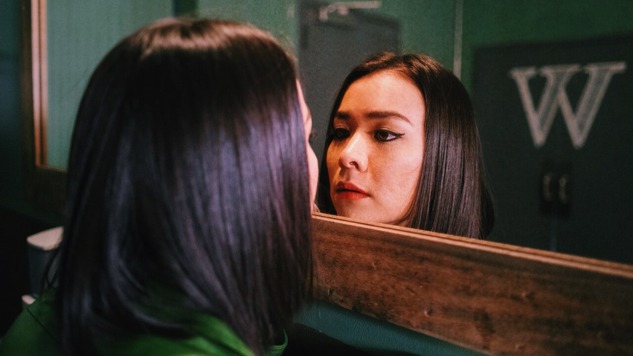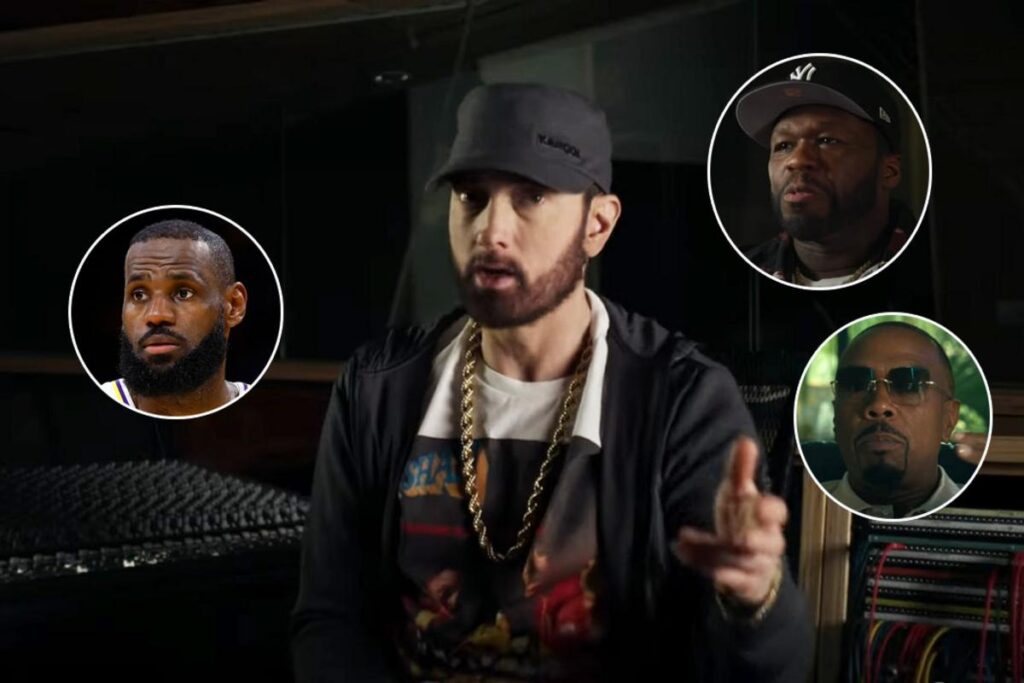Don’t let the upbeat melody and idiosyncratic lyrics of Don McLean’s 1971 earworm “American Pie” fool you: The song is nothing short of a heart-wrenching, melancholic eulogy. The eight-and-a-half-minute song revolves around the 1959 plane crash that tragically killed young rock stars Buddy Holly, The Big Bopper and Ritchie Valens—an event which, in McLean’s eyes, also killed early rock and roll and marked America’s descent into civil unrest. That day, McLean repeats throughout the song, was the day that music died. This grim backstory is the premise of Mark Moormann’s unfocused new documentary The Day the Music Died: The Story of Don McLean’s “American Pie”. The film looks at the beloved song from a number of angles: We see behind-the-scenes clips of the frustrating recording process, hear the song’s history first-hand from McLean, and receive testimony from artists like Garth Brooks that “American Pie” is the greatest song of all time.
Given this, much of The Day the Music Died is contingent on the belief that “American Pie” is, indeed, the greatest song of all time. A lot of evidence for this being the case does ring true: There was nothing like it before and there has been nothing like it since; it functions as a capsule for a turbulent moment in history, and is also somehow timeless (“a generation lost in space” has never felt so relatable). But The Day the Music Died overlooks that “American Pie” has also stood the test of time because of its fantastic musical composition. The documentary glosses over the catchy percussion, the infectious harmonies and the undeniable way that the rhymes roll off the tongue. Perhaps this would be a little easier to overlook if the film tried harder to mirror the contagious rock-and-roll spirit of the track with faster editing or more intentional integration of McLean’s song.
That said, Moormann is clearly much more concerned with the story behind “American Pie” and its lasting legacy. Unsurprisingly, much of this ends up being quite poignant—like Ritchie Valens’ sister explaining how much the song helped her and her family through their grieving process, or the haunting interview with the owners of the farm where the fated plane crashed regarding how it feels to unwittingly be a part of such an infamous tragedy.
But a lot of The Day the Music Died just consists of people saying that “American Pie” is the greatest song of all time. If you don’t agree, well, tough luck. At times, the documentary simply feels like a fan letter. This lack of thesis or sense of direction particularly comes through in the editing, which fails to coherently thread together different storylines. At one point, Brooks recounts how his massive audiences would erupt with excitement when he uttered the first few words of “American Pie,” with arresting footage to back it up. Shortly after, we flip back to McLean’s interview, which hasn’t yet moved past his early days of songwriting. This depletes any tension that might have been built into the narrative regarding the unpredictable beginning of McLean’s career.
Despite the documentary’s scattered approach, it’s not exactly a chore to take interest in the backstory of such an iconic moment in American cultural history. Even the minor details—like the famous lyric “moss grows fat on a rolling stone” actually being a description of gaining weight, or McLean writing every verse within an hour—are bound to capture the audiences’ interest.
Nearly five minutes into “American Pie,” McLean asks, “Do you recall what was revealed the day the music died?” And though that day took place over 60 years ago and many may not have been alive to remember it, the song speaks to the recollection of any major cultural shift, regardless of the specific moment. I certainly remember the day I heard “American Pie” for the first time: I was eight, and my brother played it for me on his stereo. McLean was certainly right about one thing—I can still remember how that music used to make me smile, even if the documentary about the song might not.
Director: Mark Moormann
Stars: Don McLean, Peter Gallagher, Garth Brooks, Jade Bird
Release Date: July 19, 2022 (Paramount+)
Aurora Amidon is a film journalist and passionate defender of Hostel: Part II. Follow her on Twitter for her latest questionable culture takes.




